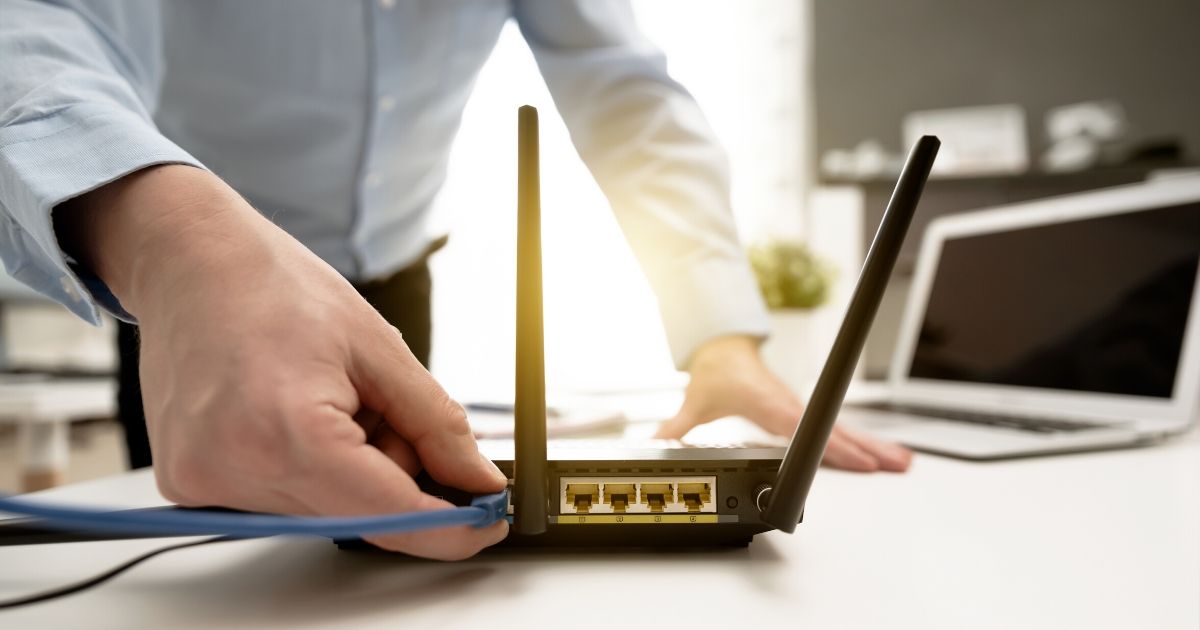
Op-Ed: Want To Make Rural America Great? Connect It to the Web
President Trump wants to spend trillions on infrastructure as part of an economic recovery plan.
Here’s an idea: Qualcomm general counsel Don Rosenberg has declared that “Covid-19 Exposes Connectivity Gap, and Need for 5G to Close It.” I couldn’t agree more. And – go ahead and pass the smelling salts to my libertarian friends – the government should pony up and make it happen. Here’s why.
There’s a time and a place for government spending. Common defense and promoting the general welfare, for example. That’s in the Preamble to the Constitution, which they’ve solemnly recited at every Daughters of the American Revolution meeting I’ve ever attended.
Bringing the net to the hinterlands will promote the general welfare. I’m for it. It’s a proper function for the government to fulfill.
Rosenberg reminds us how lost we’d be in this national lockdown if we didn’t have the internet to connect, enlighten, educate, employ and entertain us.
Most of us, that is, but not all of us. Poor people and rural residents are missing out. “Distance learning” doesn’t mean much to a kid in northern Vermont who doesn’t have internet at home and can’t get to a library.
The web can be a great equalizer, letting a teen in Tulsa groove to the same tunes as a hipster in Hamburg, making MIT courses, telemedicine, foreign language instruction or the latest Paris fashions available at a mouseclick — not to mention news, cute kittens and countless films.
Rural communities are at a huge disadvantage if students, residents and business owners can’t connect. Folks who have lately discovered (along with their employers) that they can work remotely can’t relocate to areas without reliable connectivity.
I’m sure Mr. Rosenberg is not entirely disinterested. His company would stand to make zillions in a universal nettification push. Sing along with me now: There’s no interest like self-interest, the best interest I know / Everything about it is revealing, everyone’s true colors always show…
But what’s good for Qualcomm and Comcast and all the rest of them is good for America this time.
Let’s look at history. In the 1930’s, 90 percent of urban dwellers had electricity but only 10 percent of rural dwellers did.
The provision of electrical power to rural areas was believed to be technically infeasible: It would cost too much to install and farmers were too poor to pay for it anyway.
But on May 11, 1935, President Franklin Delano Roosevelt issued Executive Order 7037, creating the Rural Electrification Administration, which was later adopted by Congress. Within a decade, nine out of ten farms were electrified.
The rest, as they say, is history. Access to electricity completely changed farm life, bringing appliances into homes and fields, improving health and sanitation with running water and refrigeration, increasing productivity and connecting rural populations to the outside world with radio.
It was either Voltaire or La Rochefoucauld – maybe both – who observed that one generation’s luxury becomes the next generation’s necessity. What electricity was to rural areas 90 years ago, the web is today. It’s the juice that makes a jillion things possible, from the mundane to the magnificent.
Which brings us to the Fifth Commandment of the Capitalist Manifesto:
“The federal government shall generously fund research and development, which are the foundation of the nation’s prosperity, skilled jobs and material quality of life.”
Extending high-speed internet connectivity to all corners of our nation, as Rosenberg compellingly argues, will bring the blessings of prosperity to ourselves and our posterity. There are technical hurdles, but I’m confident they can be managed. Rural electrification faced technical challenges, too, but they were overcome.
The obstacles to 100 percent nationwide connectivity in 2020 are minor compared to those facing rural electrification in 1935. But the return on investment was – and will be — incalculable. We can’t ensure equal outcomes, but surely universal internet access would not just level but also lift the playing field.
Heaven knows, government has famously squandered taxpayer dollars on less practical projects. (Bridge to Nowhere, anyone?)
Government spending isn’t always waste, fraud and abuse. Public expenditure that improves the general prosperity is much to be desired.
As Rosenberg says, universal access to high-speed internet, like access to electricity in the 1930s, will narrow the gap between haves and have-nots. That sounds like “promoting the general welfare” to me. Let’s do it.
The views expressed in this opinion article are those of their author and are not necessarily either shared or endorsed by the owners of this website. If you are interested in contributing an Op-Ed to The Western Journal, you can learn about our submission guidelines and process here.
Truth and Accuracy
We are committed to truth and accuracy in all of our journalism. Read our editorial standards.
Advertise with The Western Journal and reach millions of highly engaged readers, while supporting our work. Advertise Today.












